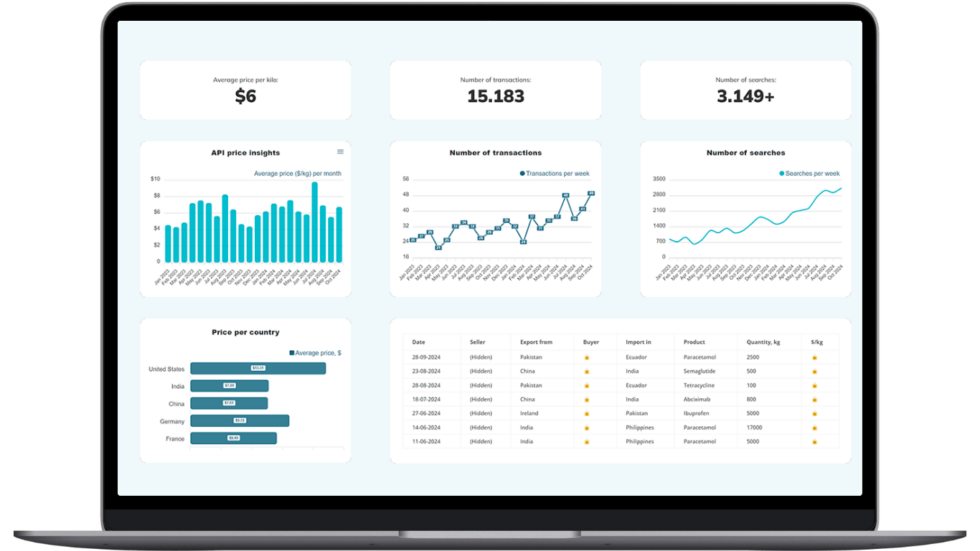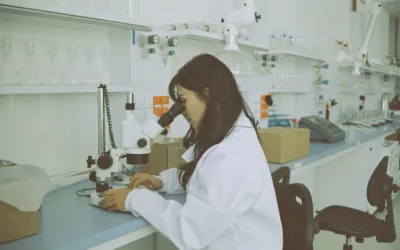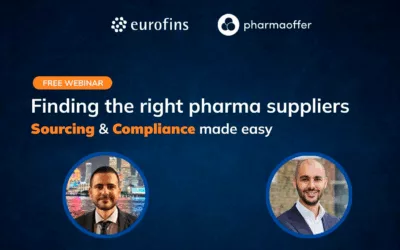What is the FDA?
Food and Drug Administration

David Blok | Posted on October 23, 2023
Introduction
Have you ever wondered who ensures the medications you take are safe and effective? Enter the FDA. Serving as the guardian of public health, the FDA plays a pivotal role in the pharmaceutical industry. But what exactly is the FDA, and why does it matter to industry professionals?
Brief History of FDA
The FDA, or the U.S. Food and Drug Administration, has its roots tracing back to the early 20th century. Established in 1906, its primary mission was to protect consumers from misbranded and adulterated foods, drugs, and cosmetics. Over the decades, its responsibilities expanded, making it the powerhouse regulator it is today.
The Role of FDA in the Pharmaceutical Industry
Imagine the pharmaceutical landscape without a watchdog. Risky, right? The FDA steps in to fill this crucial role.
Ensuring Drug Safety
Safety is paramount. Before any drug hits the market, it undergoes rigorous scrutiny by the FDA. This ensures that the benefits of the drug outweigh any potential risks.
Overseeing Clinical Trials
Clinical trials are the backbone of drug development. The FDA oversees these trials, ensuring they’re conducted ethically and that the data generated is accurate and unbiased.
Regulation of Over-the-Counter and Prescription Drugs
Not all drugs are created equal. While some are available over the counter, others require a doctor’s prescription. The FDA classifies and regulates these medications, ensuring that over-the-counter drugs are safe for public consumption without expert supervision, while prescription drugs are administered under a healthcare professional’s guidance.
The Path to FDA Approval
Major steps in the FDA’s drug review process
|
|
Animal testingSponsor tests drug on multiple animal species to gather information about safety and efficacy. |
|
|
IND applicationSponsor submits an Investigational New Drug (IND) application, which includes initial findings and plans for human trials, for FDA review. |
|
|
Clinical trialsSponsor undertakes three phases of clinical trials, progressively increasing the number of volunteers, to determine the drug’s side effects, safety, and effectiveness. |
|
|
NDA applicationSponsor submits a New Drug Application (NDA), which includes clinical trial findings, for FDA review. |
|
|
Label reviewFDA ensures appropriate information for both health-care professionals and consumers is included on the drug label. |
|
|
ApprovalFDA either approves or rejects the drug for the U.S. market. |
|
|
Post-marketing monitoringSponsor submits periodic safety updates to the FDA. |
by Icons8
Source: U.S. Food and Drug Administration.
The FDA Approval Process
The journey of a drug from the lab to the pharmacy shelf is intricate. Let’s demystify the FDA’s approval process.
Phases of Clinical Trials
A drug undergoes multiple phases of clinical trials before it’s deemed safe:
- Phase I: Safety evaluation with a small number of participants.
- Phase II: Efficacy and side-effect assessment in a larger group.
- Phase III: Large-scale testing to confirm effectiveness and monitor side effects.
- Phase IV: Post-marketing surveillance.
To gain a deeper understanding of the intricacies of clinical trials, especially in relation to Active Pharmaceutical Ingredients (API), consider reading ‘EVERYTHING YOU NEED TO KNOW ABOUT API CLINICAL TRIALS‘.
Post-Approval Surveillance
The FDA’s job doesn’t end with drug approval. It continuously monitors drugs for any adverse effects, ensuring long-term safety.
Key Terms Associated with the FDA
Let’s decode some jargon associated with the FDA.
New Drug Application (NDA)
An NDA is the formal step a drug sponsor takes to request that the FDA consider a drug for commercial marketing and sale.
Generic Drug
A generic drug is a medication that offers the same therapeutic benefits as its brand-name counterpart but is sold under a different name.
Biologics License Application (BLA)
For biological products like vaccines, a BLA is submitted instead of an NDA. It’s the FDA’s green light for production and sale.

Make Smarter API Decisions with Data
Access exclusive insights on global API pricing, export/import transactions, competitor activities and market intelligence.
The Impact of FDA Decisions on the Pharmaceutical Industry
The FDA wields considerable influence in the pharmaceutical world. Its decisions can make or break a drug’s future. From approval timelines affecting a company’s stock price to recalls that might tarnish a brand’s reputation, the FDA’s verdicts are closely watched by industry stakeholders.
To delve deeper into the challenges pharmaceutical companies might face due to FDA decisions, consider reading ‘Navigating the FDA’s Warning Letter: A Comprehensive Guide‘.
FDA’s Global Influence
While the FDA is a U.S. entity, its impact is felt globally. Many countries look to the FDA’s decisions as a benchmark. When the FDA approves a drug, it often paves the way for approvals in other nations.
Criticisms and Controversies
No institution is without its critics. The FDA, given its pivotal role, has faced its share of controversies. From accusations of being too slow in approving life-saving drugs to concerns about potential conflicts of interest, it’s essential to understand the challenges the FDA navigates.
Conclusion
The FDA, a guardian of public health, plays an indispensable role in the pharmaceutical industry. Its decisions, grounded in rigorous scientific evaluation, aim to ensure that the drugs we consume are safe and effective. As professionals in the pharmaceutical industry, understanding the FDA’s functions and processes empowers us better to navigate the complex landscape of drug development and marketing.
What's the difference between the FDA and the EMA?
The FDA is the regulatory body for the U.S., while the EMA (European Medicines Agency) oversees drug approvals in the European Union.
How long does the FDA approval process typically take?
While timelines vary, it often takes around 8-12 years from drug discovery to FDA approval.
Are FDA-approved drugs always safe?
The FDA ensures drugs have benefits that outweigh risks. However, like all medical interventions, no drug is entirely without risk.
Can a drug lose its FDA approval?
Yes. If new safety concerns arise or if the drug's benefits no longer outweigh its risks, the FDA can revoke its approval.






Check out all other blogs here!